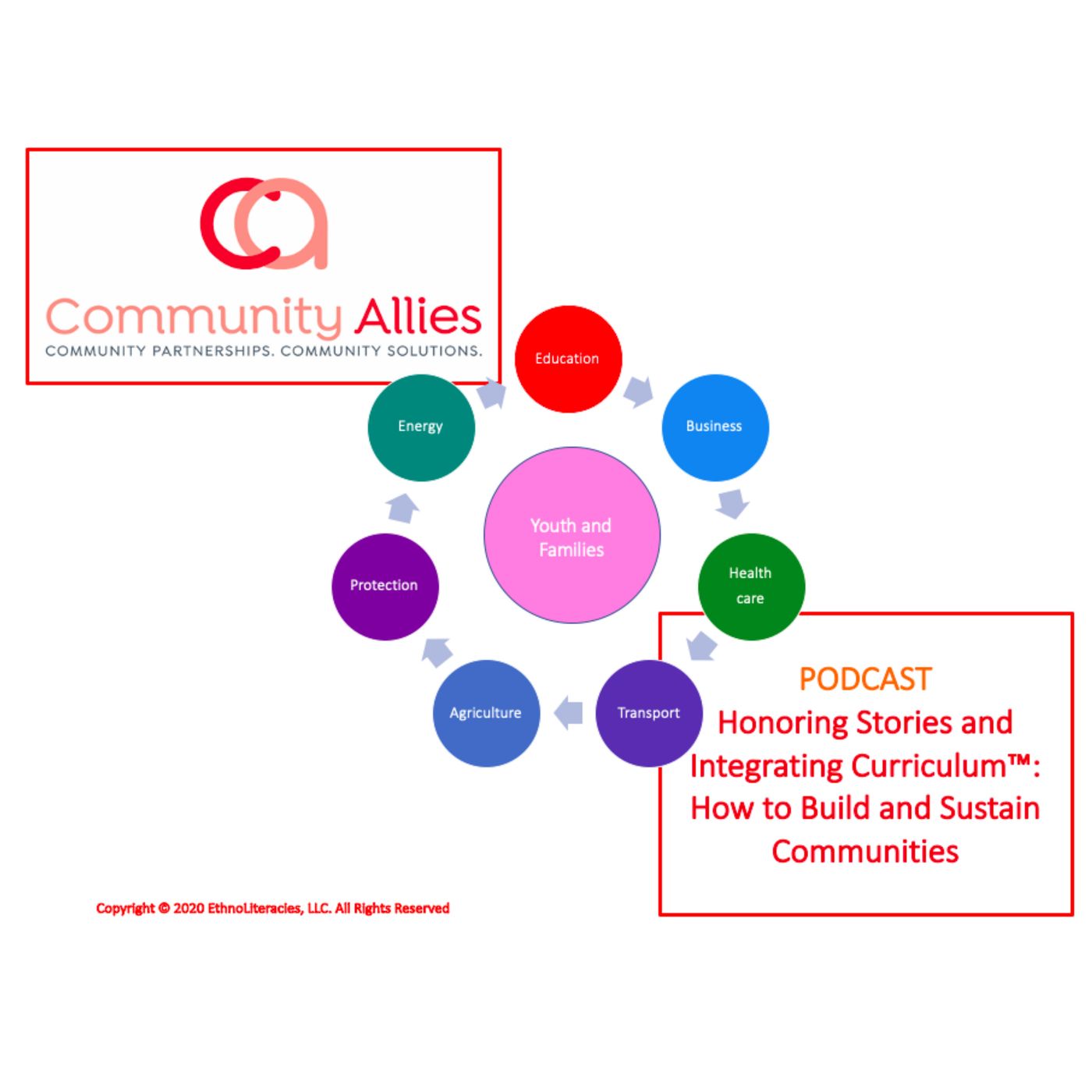Sep 06 2020 20 mins
Copyright 2020 EthnoLiteracies, LLC. All Rights Reserved
Honoring Stories and Integrating Curriculum®: How to Build and Sustain Communities
Teaching and Learning Across Race and Other Cultural Differences
Episode 4, Part 1: Carol Schumer, Parenting Specialist, Fathers and Families Support Center
•Introduction to Podcast, Honoring Stories and Integrating Curriculum®: How to Build and Sustain Communities
•Carol introduces the core problem for men FFSC learned early – fathers feel left out of the family picture: welfare, court, and societal systems emphasize financial support over emotional support
•Carol explains the holistic approach FFSC uses to address the full range of family needs - health, nutrition, employment, legal issues, counseling, social workers
•Carol explains her background as a principal and educator and the role she plays with the men as a parenting specialist
•Carol explains how she builds rapport as a white female working with mostly black men
•Carol explains how she uses stories and cartoons to teach men about parenting and the different kinds of parenting youth often receive from dads and moms, which can be provided in any household or any family
•Sarah and Carol share the importance to children of play in learning and connecting with loved ones
•Carol explains how welfare historically has worked against families, isolating men from families and discussion about the many layers of ramifications that has for each member of a family – what gets internalized and passed down across generations that came from a broken societal system
•Carol explains the hand up FFSC provides men and families instead of handouts and how programs are facilitated by male graduates who can say they’ve been there and come through
Honoring Stories and Integrating Curriculum®: How to Build and Sustain Communities
Honoring Stories and Integrating Curriculum® methods this podcast features
•Bridge-building communication
oBeing real, transparent, aware of differences in our backgrounds
•Classroom infrastructures
oCreating room for collaborative learning and mentorship
oEveryone is an expert and a teacher
oEveryone is a learner
•Building emotional intelligence
oUsing play as a central facet of learning that is both academic, social and emotional
oUsing the power of stories to make real-world connections to content
oExperiential learning that transforms us and builds our internal sense of confidence and competence
oRooting instruction in the local histories and systems that continue to impact our families
Honoring Stories and Integrating Curriculum®: How to Build and Sustain Communities
Teaching and Learning Across Race and Other Cultural Differences
Episode 4, Part 1: Carol Schumer, Parenting Specialist, Fathers and Families Support Center
•Introduction to Podcast, Honoring Stories and Integrating Curriculum®: How to Build and Sustain Communities
•Carol introduces the core problem for men FFSC learned early – fathers feel left out of the family picture: welfare, court, and societal systems emphasize financial support over emotional support
•Carol explains the holistic approach FFSC uses to address the full range of family needs - health, nutrition, employment, legal issues, counseling, social workers
•Carol explains her background as a principal and educator and the role she plays with the men as a parenting specialist
•Carol explains how she builds rapport as a white female working with mostly black men
•Carol explains how she uses stories and cartoons to teach men about parenting and the different kinds of parenting youth often receive from dads and moms, which can be provided in any household or any family
•Sarah and Carol share the importance to children of play in learning and connecting with loved ones
•Carol explains how welfare historically has worked against families, isolating men from families and discussion about the many layers of ramifications that has for each member of a family – what gets internalized and passed down across generations that came from a broken societal system
•Carol explains the hand up FFSC provides men and families instead of handouts and how programs are facilitated by male graduates who can say they’ve been there and come through
Honoring Stories and Integrating Curriculum®: How to Build and Sustain Communities
Honoring Stories and Integrating Curriculum® methods this podcast features
•Bridge-building communication
oBeing real, transparent, aware of differences in our backgrounds
•Classroom infrastructures
oCreating room for collaborative learning and mentorship
oEveryone is an expert and a teacher
oEveryone is a learner
•Building emotional intelligence
oUsing play as a central facet of learning that is both academic, social and emotional
oUsing the power of stories to make real-world connections to content
oExperiential learning that transforms us and builds our internal sense of confidence and competence
oRooting instruction in the local histories and systems that continue to impact our families
